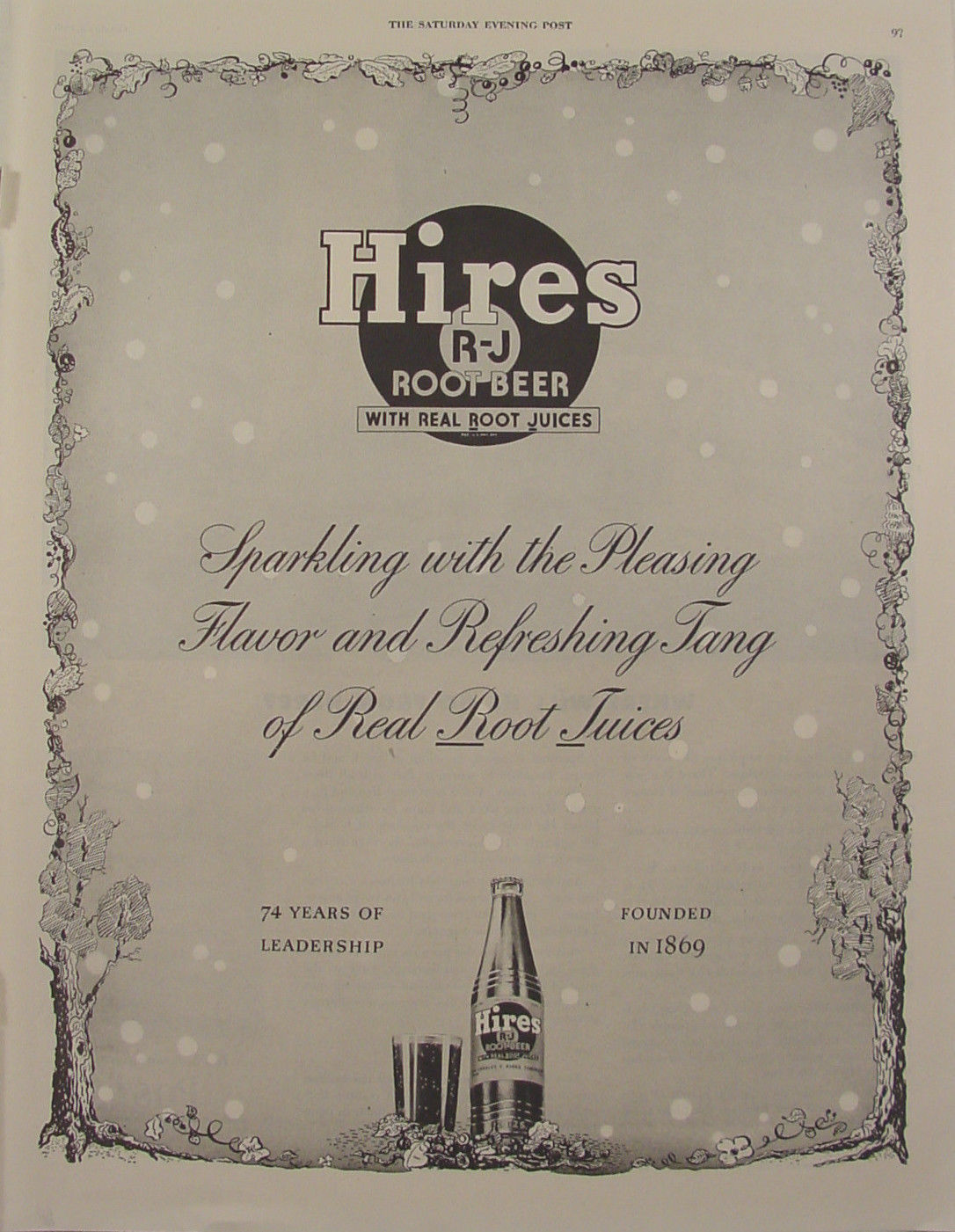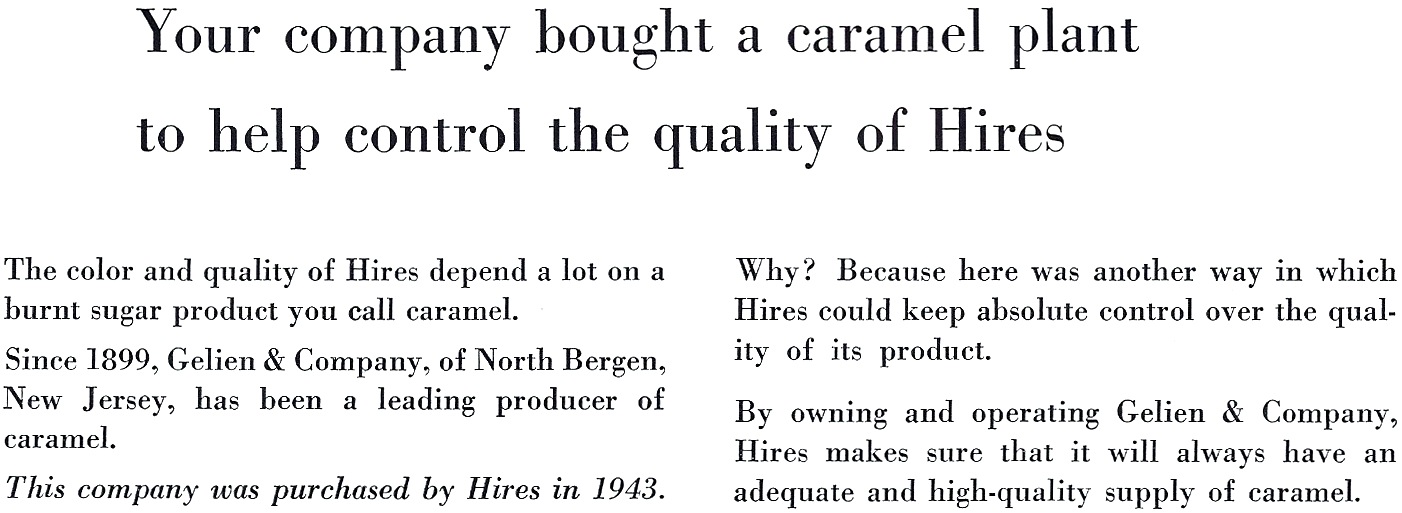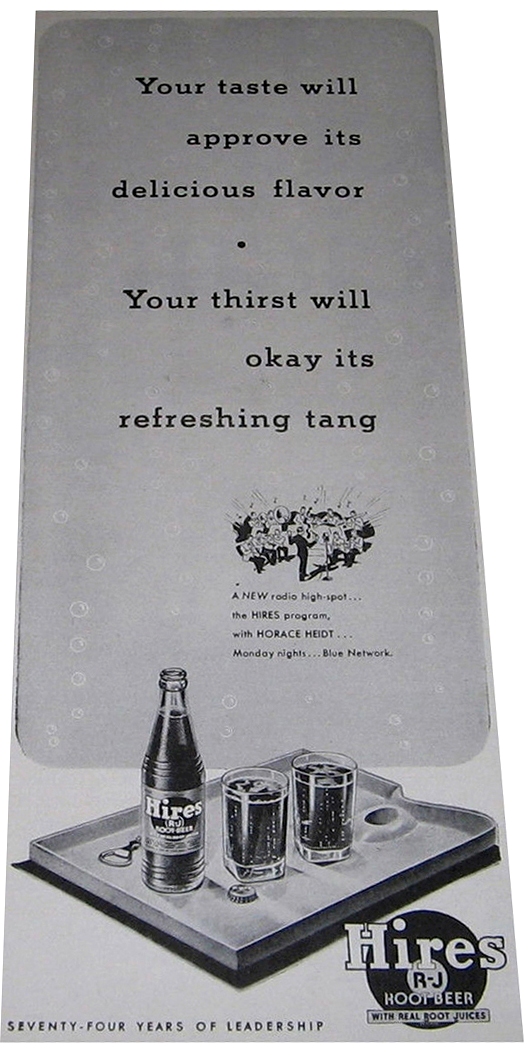1943
IT HAPPENED IN…1943
The War Manpower Commission prohibited 27 million
essential workers from leaving their jobs.
The United Mine Workers union defied the order, claiming
working conditions and wages were unacceptable.
President Roosevelt implemented a minimum 48 hour
work week for war industries.
Canned goods rationing started March 1st,
and the rationing of meat, fat, and cheese began effective May 29th.
Frankfurters were replaced with “Victory Sausages,” a
combination of meat and soy meal.
The sale of pre-sliced bread was banned in order to reduce
the need for bakeries to replace metal machinery parts.
A San Francisco restaurant chain raised the price
of coffee from 5¢ to 10¢ a cup.
Shoe rationing began February 7th
limiting civilians to three pairs a year.
Salvage drives collected tin cans, fat, paper,
iron, steel, and rags for essential industry use.
During May a zone numbering system was
implemented to accelerate mail delivery.
An influx of over 300,000 white and black war
plant workers led to race riots killing 35 and injuring over 500 in
Detroit. More race
riots occurred during the summer.
Construction of the Pentagon was completed.
Development of a research facility for the Manhattan Project,
the U.S. atomic bomb program, began at Los Alamos, New Mexico.
A polio epidemic struck the U.S. killing 1151
people and crippling thousands more.
Italy surrendered to Allied forces in September
and then declared war on Germany.
General Dwight D. Eisenhower was named Allied
Supreme Commander for the invasion of Europe.
Large scale production of penicillin began in the
U.S.
The 1882 and 1902 Chinese Exclusion acts were
repealed, allowing Chinese Americans to become naturalized citizens.
Norman Rockwell’s “Rosie the Riveter” portrait
appeared on the Saturday
Evening Post cover.
6,061 U.S. soft drink bottling plants were in
operation. Per capita
consumption was 138.6 bottles.
With war raging in Europe, rationing impacted
numerous products, including Hires R-J Root Beer.
(Figure 1943-01, magazine
advertisement)
Carry-home, cardboard cartons first appeared in the
mid-1930s and quickly became a soft drink industry standard.
In early 1943 the War Production Board restricted the use of
cardboard for manufacturing carry-home cartons and new ones weren’t
produced again until 1946.
This full page advertisement was placed in both black-and-white and full color. Note the copy declares “HIRES a family favorite for seventy-four years…FOUNDED 1869."
(Figure 1943-02,
Saturday Evening Post)
(Figure 1943-02.5, magazine advertisement, 5.0" x 10.0")
(Figure
1943-03,
Saturday Evening Post, October 2, 1943)
Hires’ company-owned bottling plant in Kansas City,
Missouri was opened November 11, 1943, and the purchase of a caramel
company in New Jersey was completed effective November 13, 1943:
(Figure
1943-04, The
Story of Hires, 1948 edition)
This late 1943 advertisement included an orchestra
illustration captioned “A NEW radio high-spot…the HIRES program, with
HORACE HEIDT…Monday nights, Blue Network.”
Horace Heidt was a popular radio bandleader during the 1930s and
1940s. Radio’s “Blue
Network” was a production and distribution service and predecessor of
the American Broadcasting Company.
(Figure 1943-05, magazine
advertisement)

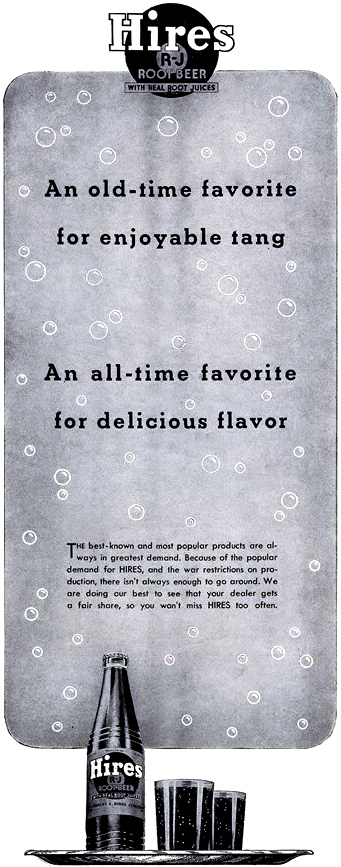
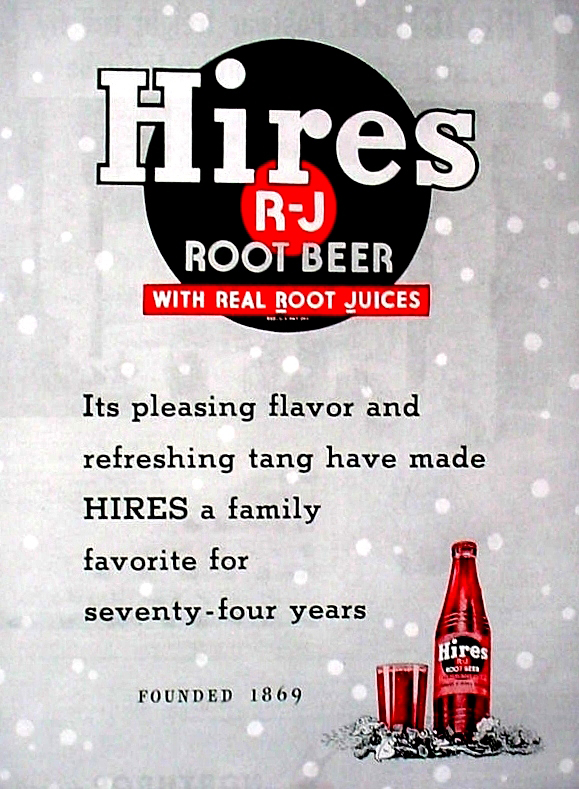
%20Root%20Beer%20With%20Real%20Root%20Juices%20The%20Taste%20that%20is%20pleasing%20The%20Tang%20that's%20refreshing.jpg)
